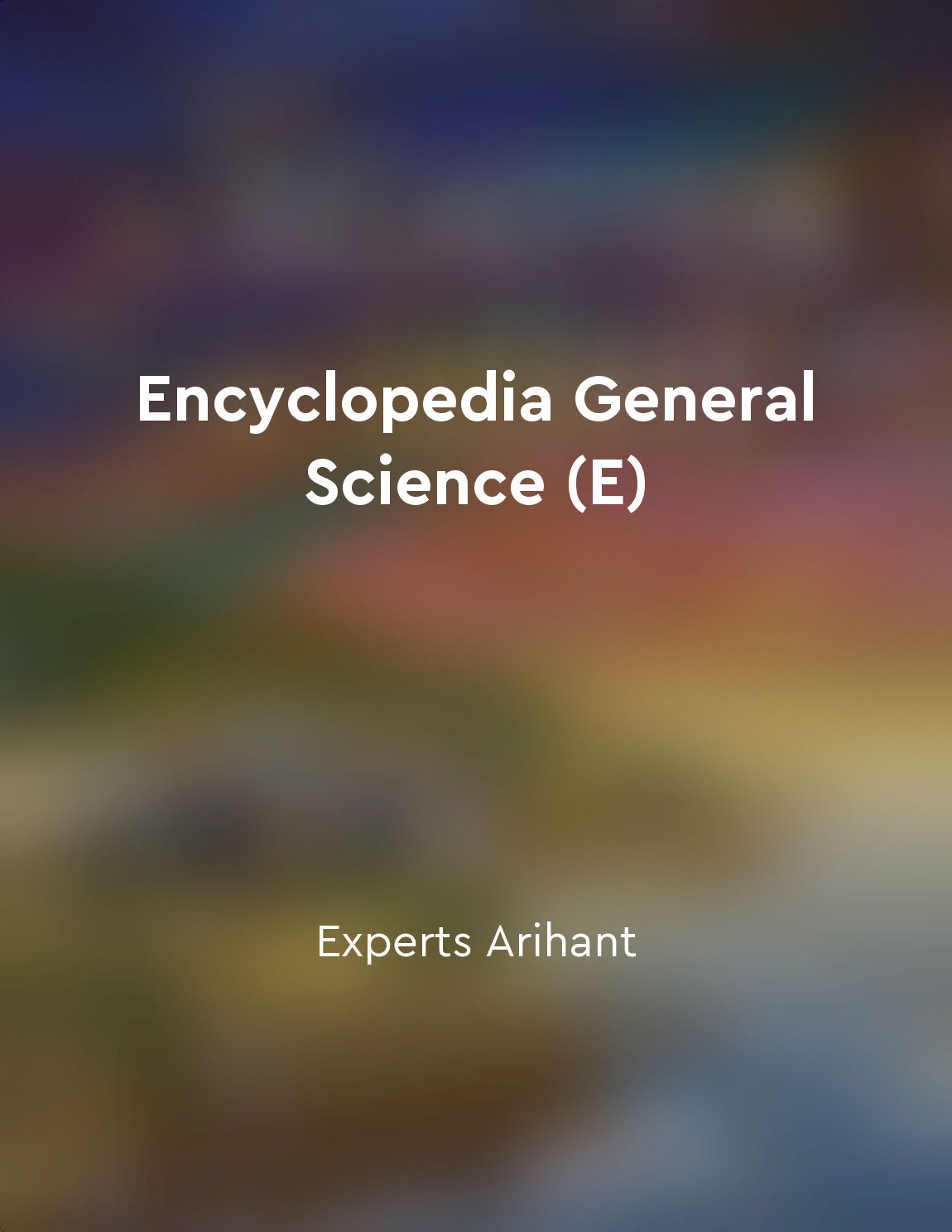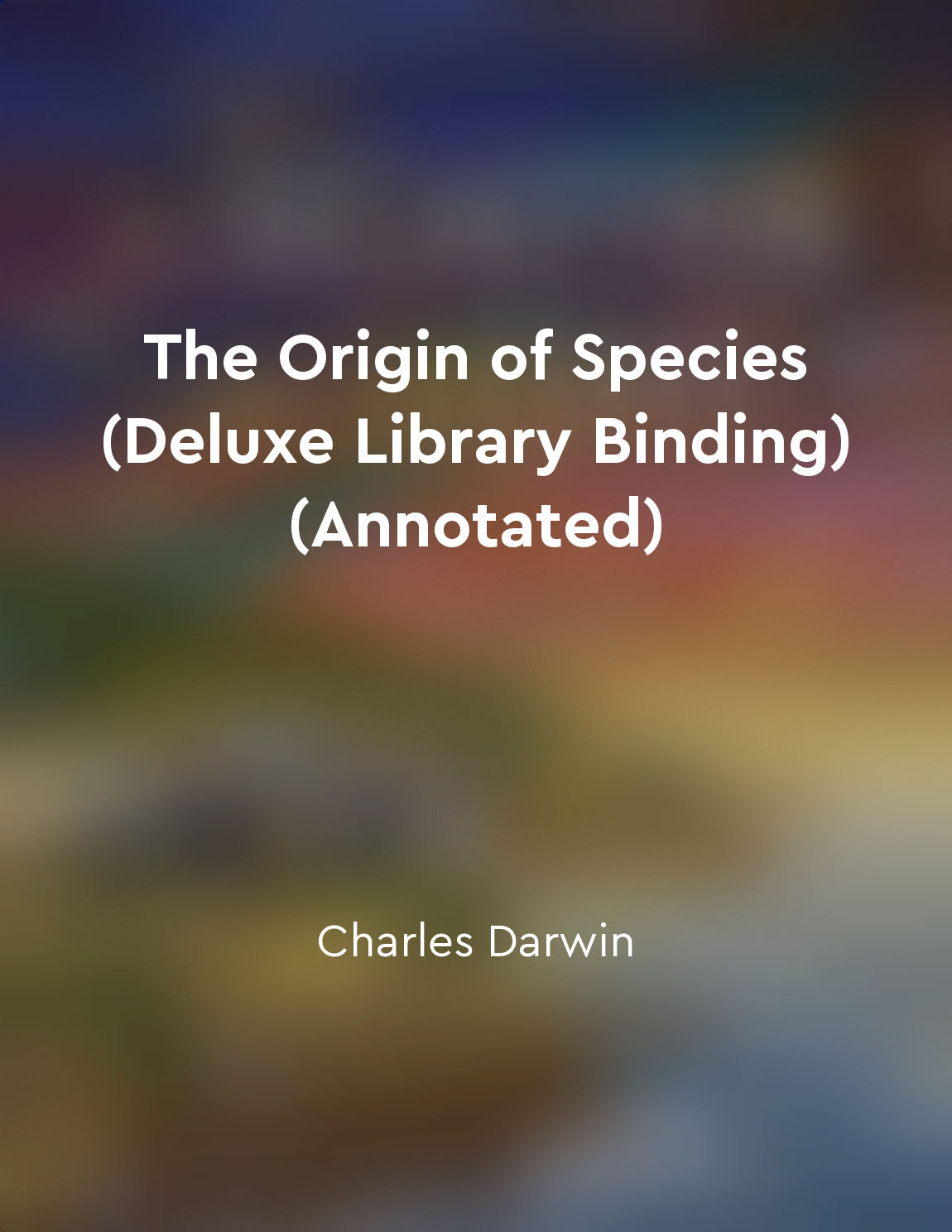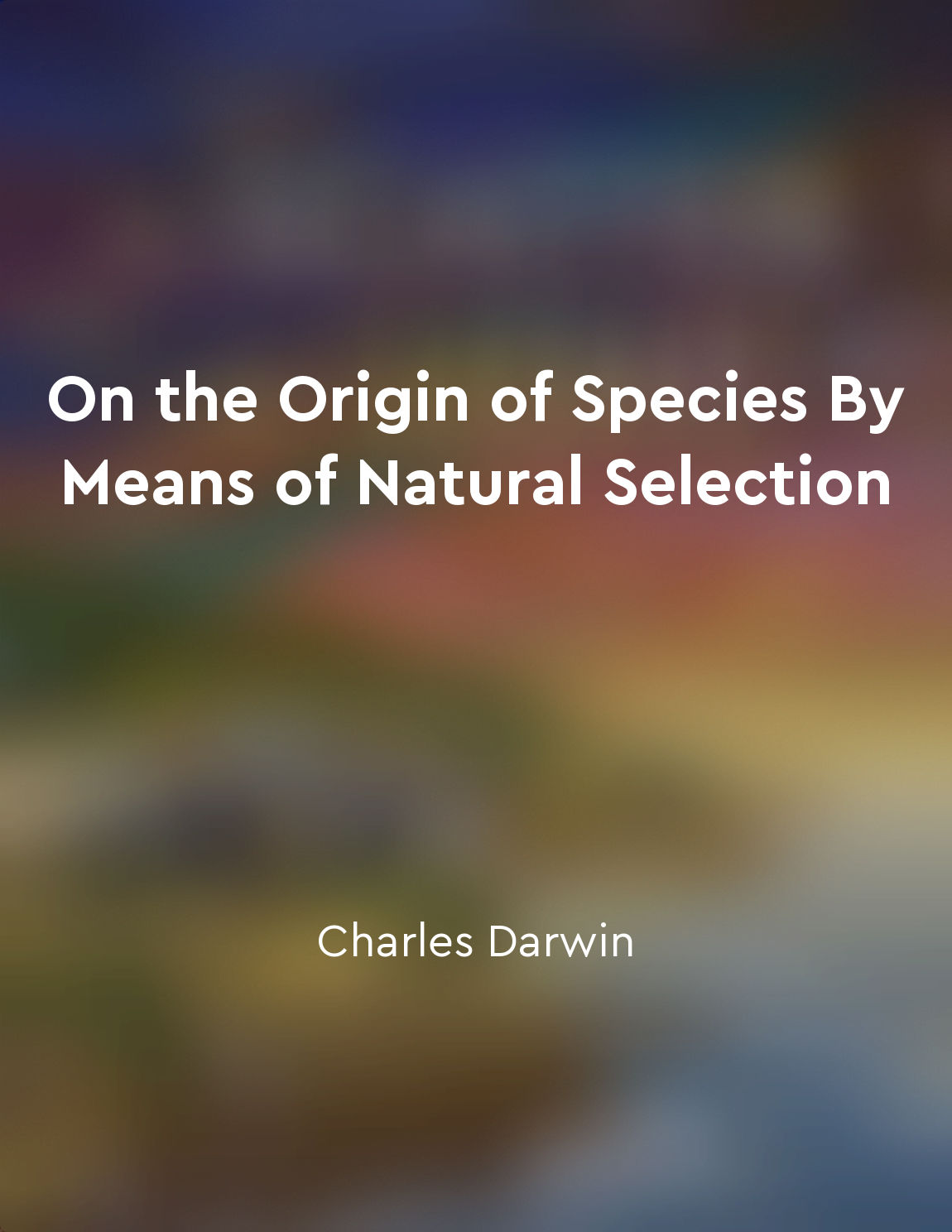Evidence from fossil record from "summary" of On the Origin of Species By Means of Natural Selection by Charles Darwin
The fossil record provides us with a valuable glimpse into the history of life on Earth. It allows us to see the progression of life forms over millions of years, offering evidence of how species have changed and evolved over time. Fossils provide us with tangible evidence of the existence of organisms that lived long ago, allowing us to study their physical characteristics and infer how they may have lived and interacted with their environment. By examining the fossil record, we can observe the gradual changes that have occurred in various species over time. We can see how certain traits have been modified or lost, and how new traits have emerged through the process of natural selection. Fossils also provide us with a unique perspective on the diversity of life that has existed on Earth, showing us the vast array of species that have inhabited our planet throughout its history. One of the key insights that the fossil record offers is the concept of transitional forms. These are organisms that exhibit characteristics of both ancestral and descendant species, providing evidence of the gradual changes that have taken place over time. Transitional forms help us to understand the process of evolution and how species have adapted and diversified to fit their ecological niches. Furthermore, the fossil record allows us to study the patterns of extinction that have occurred throughout Earth's history. By examining the remains of extinct species, we can gain insights into the factors that may have contributed to their demise, such as environmental changes or competition with other species. Fossils also provide evidence of mass extinction events, which have had profound effects on the course of evolution and the diversity of life on Earth.- The evidence from the fossil record is a crucial tool for understanding the history of life on Earth and the processes of evolution that have shaped the diversity of species we see today. By studying fossils, we can gain valuable insights into the patterns of change and adaptation that have occurred over millions of years, providing us with a window into the past and a deeper appreciation for the complexity of life on our planet.
Similar Posts
Technology can be used to track and monitor endangered species
Technology has revolutionized the way scientists track and monitor endangered species. With the help of various tools like GPS ...
Governments should prioritize investments in agricultural research and development
Investments in agricultural research and development are crucial for ensuring food security and sustainability in the face of a...

The scientific method is a systematic approach to investigation
The scientific method is a systematic approach to investigation. It is a structured way of asking questions about the natural w...
Religious faith is a barrier to progress and enlightenment
Religious faith, according to Dawkins, inhibits progress and enlightenment. This is because faith is based on belief without ev...

Over time, populations diverge
As generations pass, slight variations inevitably arise within populations. These variations may seem insignificant at first, b...
Earth is a unique planet in our solar system
Earth stands out as a singular entity in our solar system, a planet unlike any other. Its remarkable features make it a haven f...


